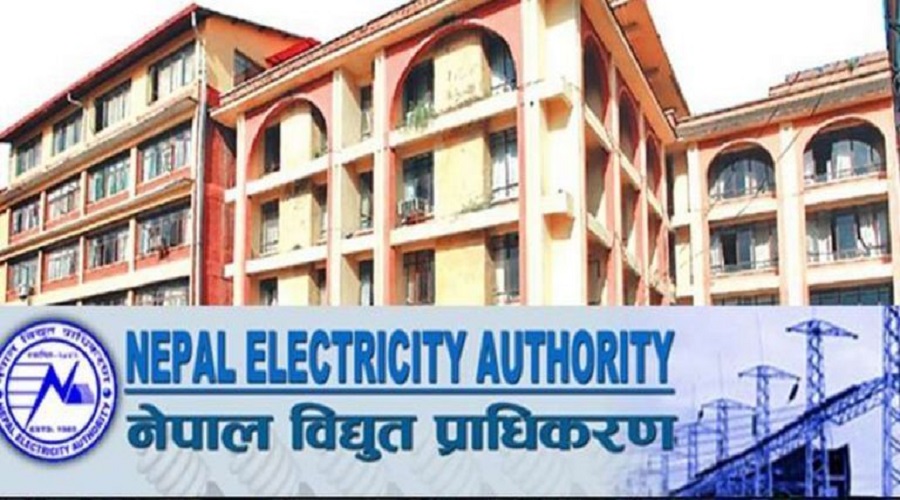KATHMANDU: The Nepal Electricity Authority has once again received a ‘Double A Plus’ credit rating this year. ICRA Nepal Limited has assigned the ‘ICRA NP Double A Plus’ credit rating to the Authority.
Receiving a ‘Double A Plus’ rating means that the organization can effectively manage its financial and economic responsibilities and maintain a high capacity to repay debts in a timely manner, thus ensuring financial stability and security. Organizations that receive the ‘Double A Plus’ rating have a lower risk of defaulting on their financial obligations.
ICRA Nepal conducted an analysis of the Authority’s financial condition, assets, business and financial risks, managerial capacity, operational effectiveness, and the impact of internal and external environmental factors. The credit rating was determined based on this analysis.
In credit rating, an entity’s creditworthiness in terms of its financial and economic health is assessed, and opinions are provided. This rating provides a symbolic indicator of the organization’s ability to meet its debt obligations in relation to its creditworthiness.
Established under full government ownership, the Authority is responsible for ensuring efficient, sustainable, and widely accessible electricity supply. In addition to nationwide electricity production, transmission, and distribution, the Authority is also involved in cross-border electricity trade.
The government supports the Authority in implementing its domestic and cross-border electricity development programs through annual budget allocations, investments in shares (equity or debt), and other necessary financial means.
Kul Man Ghising, the Executive Director of the Authority, mentioned that organizations that receive a credit rating like this can effectively meet financial responsibilities, demonstrate the capacity to repay loans on time, and can handle an increased demand for electricity imports in a short period.
He also pointed out the success of increased electricity exports, growth in domestic electricity consumption, and improvements in the power system control achieved through system upgrades.
The Authority is planning to release a considerable premium amount from the internal fund to complete the capital increase of about NPR 3 billion, and this will add a premium to the value of approximately NPR 60 billion for the initial public offering (IPO) to the general public. The share’s book value is expected to be around NPR 125, and an additional premium will be added for the share issuance.
Ghising also highlighted that the revenue generated from the credit rating and the funds obtained through share issuance would be used to fulfill the plans for building electricity production projects and improving the quality, sustainability, and security of electricity supply.
The Authority has signed long-term power purchase agreements (PPAs) for electricity generation with domestic and foreign investors. The results of the credit rating reflect the organization’s strong financial capacity and ability to make financial investments without high risks involved in the power sector.
ICRA Nepal also mentioned that the Authority, being under complete government ownership, holds the exclusive rights to buy and sell electricity in the country, including approximately 1,100 MW of electricity production capacity. The government allocates funds for loans and investments in shares through the annual budget, according to ICRA Nepal.
ICRA Nepal highlighted that additional funds dedicated to improving the transmission and distribution system and for expansion plans could lead to increased pressure on the organization’s cash flow. Therefore, ICRA Nepal noted that a substantial part of the revenue generated from the credit rating and the share issuance is intended to cover the financing gap.
The Authority has been considering a proposal to issue shares to the general public as per the Nepal Electricity Authority Act, 2041 BS. The Authority’s capital will be approximately NPR 3 billion, with a 10% premium, and the proposal for the issuance of the primary shares to the general public is included in this.
Executive Director Ghising expressed that the credit rating has paved the way for obtaining approval from the government to proceed with the share issuance process.
He stated, “The credit rating reflects the financial health of the Authority, the capacity to repay loans, the adequate capacity to meet the internal demand, the rapid replacement of electricity imports, growth in annual electricity exports, growth in internal electricity consumption, and control system improvements, among other successes.”
He added, “There is a need for substantial capital to construct electricity production projects for electricity supply, improve the quality, sustainability, and security of the system, and for its expansion. The organization is planning to use the revenue it has earned and the funds obtained from the share issuance to fulfill this investment plan.”

